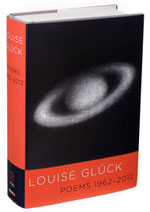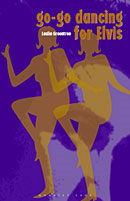
Even in the afterglow of the Griffin Poetry Prize festivities, which are about as close as you’re going to elevate poetry and poets to a combination of Nobel Prize veneration and rock star status … loving poetry still feels like a rarified pursuit. It touches you, excites you and jazzes you – and yet the eyes of your colleagues, friends and loved ones might still glaze over when you start to rhapsodize about Don McKay, Tomas Transtromer or Louise Glück.
It isn’t enough to try to defend and promote a somewhat misunderstood or underappreciated art form by insisting that those song lyrics your sister can’t get out of her head, even that clever advertising slogan that resonates for your co-worker … well, just might have an element of poetry to it. No, poetry should not be the spinach hidden in the brownie recipe. And no, the benefits of poetry should not be a clinical Yahoo Answers entry, complete with crowd-sourced ratings, right in there with how to remove grass stains from silk or how to configure your web site’s htaccess file.
You want to see that light in your doubting loved ones’ eyes sparked by a whimsical or startling insight from John Ashbery or Kathleen Jamie or Dina Del Bucchia or Lorna Crozier or Phil Hall or … And if you can create that illumination while supporting the poets and publishers and curators of collections and readings events who make it all possible, all the better. Some small acts of poetry are in order.
You can start with something modest and fleeting (but still thoughtful and tailored to the recipient) like this …

With so much poetry offered online in delicious treasure troves and repositories, from Poetry Foundation to The Academy of American Poets to The Poetry Archive to the Griffin Poetry Prize to countless journals and publications (Arc Poetry Magazine, ditch, Forget Magazine, Jacket2 … and … and …) … well, it’s easy to find and post the perfect stealth poem on the appropriate subject, in the ideal style, striking just the right tone, for someone who needs it … or doesn’t yet know he or she needs it.
Feeling adventurous? Want to kick that stealth poetry thing up a notch? How about trying it in real life, easing some poetry into unexpected locations where people might need it more than they realize?
My own forays into real life stealth poetry have been inspired by Poems in the Waiting Room, a UK-based initiative spearheaded by the Arts in Health charity, which publishes and supplies short collections of poems for patients to read while waiting to see their doctor and to take away with them. There is no charge to the patient or to the National Health Service. What a receptive setting into which they’re introducing poetry – one where people are seeking comfort or at very least some distraction or diversion. With that in mind, I left this in my dentist’s office …

… and this in my doctor’s office, where I was thrilled to see someone actually pick it up as I was departing after my appointment.

Oh, and then there’s #todayspoem, the daily small act of giving and receiving poetry that many of us have been practicing on Twitter for a year and a half. I’ve described and discussed (gone on about it?) it enough on this blog that it warrants its own category. More than 250 individuals on Twitter have contributed at least once and usually much more frequently to daily tweeted poetry excerpts that – a mere hashtag away – run the gamut of the art form and range from earliest days to the freshest, newest voices. Simply look at the gorgeous book covers and radiant faces shining out here.
I was inspired to think about small acts of poetry (and lifted the phrase, which I hope she won’t mind) from a quietly moving piece by poet Amanda Earl recently posted in the ottawa poetry newsletter.
I am the last person to rabbit on about the therapeutic value of poetry. I don’t really need poetry to have some kind of function in society. I don’t really know what my point is here except to say that these small acts of poetry helped me through a very difficult time.
What were those small acts of poetry that had such powerful and healing effects? Read Amanda’s story here.
The elegance and grandeur of the Griffin Poetry Prize events and the relatively substantial media attention they garner, combined with the diversity of poetry and poets the prize showcases, needs as its counterpoint the small acts of poetry that bring it home, by virtue of the personal and trusted recommendation, the hand-delivered physical book object, the intimate connection when it’s most needed … to bring it all swiftly, soundly and beautifully to heart.
What are the small acts of poetry you’re going to give and that you’re going to look forward to receiving?
See also:
- 10 Guerrilla Poetry Projects (via Flavorwire)
- Poetry In Transit
- 50 ways to leave your poetry, by Stuart Ross (via Open Book Toronto)























